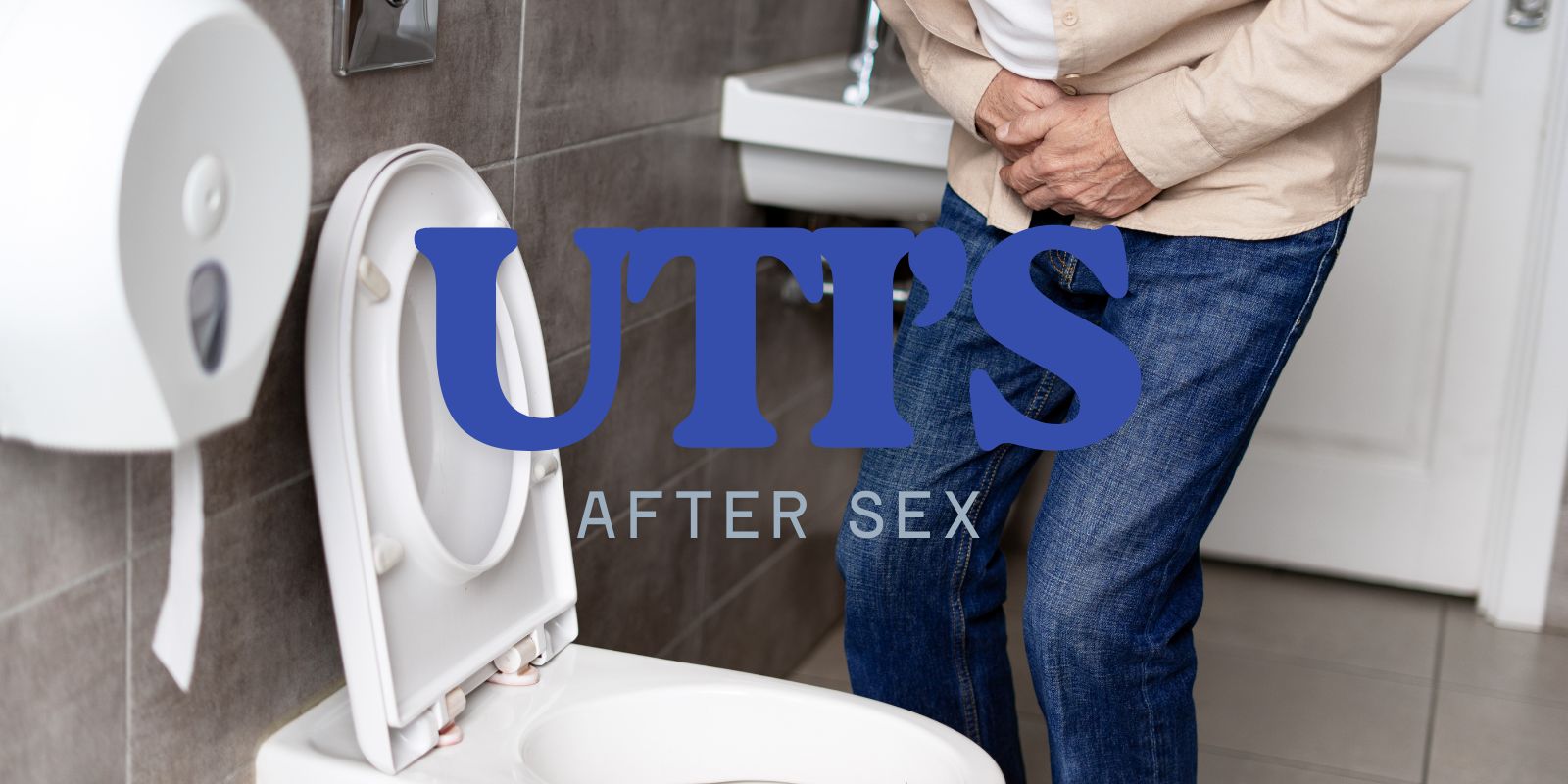UTIs After Sex: Causes, Prevention, and Relief
UTIs after sex are common, especially for women, and can make intimacy feel stressful. A urinary tract infection happens when bacteria enter the urethra and multiply, often after sexual activity. Understanding why this happens, how to lower risk, and what treatments work best can protect both health and pleasure.
UTIs after sex occur when bacteria enter the urinary tract during intimacy. Hydration, urination after sex, and good hygiene lower the risk.
Table of Contents – UTIs After Sex
- Why UTIs Happen After Sex
- Who Is Most at Risk?
- Prevention Tips That Work
- Treatments and Relief Options
- FAQ: UTIs After Sex
- Balancing Sexual Health and Pleasure
Why UTIs Happen After Sex
During sex, friction can push bacteria from the genital area or anus into the urethra. Women are more prone due to a shorter urethra, but men can also be affected. According to Healthline on UTIs after sex, even minor shifts in vaginal or urinary tract bacteria can lead to infection. Shared toys, inadequate lubrication, or prolonged activity may also increase the risk.
Who Is Most at Risk?
Anyone can get a UTI, but risk increases with certain factors:
- People with a vagina, due to anatomy.
- Postmenopausal women with lower estrogen levels, which affect urinary tract health.
- Men with enlarged prostates or who use certain prostate stimulators, as highlighted in how to use a prostate massager.
- People who use spermicides or diaphragms for contraception.
- Those with diabetes or weakened immune systems.
The Cleveland Clinic on UTIs after sex emphasizes that frequency of sex and hygiene habits also play a role in susceptibility.
Prevention Tips That Work
There are many strategies to lower UTI risk without avoiding intimacy:
- Stay hydrated: Drinking water before and after sex flushes bacteria from the urinary tract.
- Urinate after sex: This is one of the simplest ways to reduce bacterial growth.
- Clean toys and furniture: Wash shared devices thoroughly, and keep items like sex furniture sanitary to prevent contamination.
- Lube matters: Dry sex increases friction and irritation. Water-based or silicone-based lubes protect tissue better.
- Wipe front to back: This reduces the chance of moving bacteria toward the urethra.
- Kegel training: Stronger pelvic muscles, supported by tools like kegel trainers, may improve bladder control and urinary health.
Treatments and Relief Options
If prevention isn’t enough, UTIs can be treated effectively. Antibiotics are the standard treatment, usually prescribed for 3–7 days. Drinking lots of fluids and using a heating pad can ease discomfort while healing. Cranberry products may offer mild support, though evidence is mixed. Over-the-counter pain relievers also help reduce burning and urgency.
Those with frequent UTIs may benefit from low-dose preventive antibiotics, vaginal estrogen for postmenopausal women, or probiotic support. Always seek medical guidance if symptoms persist longer than two days or worsen.
FAQ: UTIs After Sex
Are UTIs after sex dangerous?
Most are not serious if treated early, but untreated infections can spread to the kidneys, which is more dangerous.
Can men get UTIs after sex?
Yes. While less common, men can experience UTIs, especially with prostate issues or frequent anal sex.
Is urinating after sex enough to prevent UTIs?
It helps, but combining it with hydration, hygiene, and lubrication offers better protection.
When should I see a doctor?
If symptoms last more than 48 hours, include fever, or cause back pain, seek medical evaluation promptly.

Balancing Sexual Health and Pleasure – UTIs After Sex
UTIs after sex may feel discouraging, but with prevention strategies, treatment options, and open communication, they don’t need to get in the way of intimacy. Staying hydrated, practicing good hygiene, and seeking care when needed makes sex safer and more enjoyable. With the right knowledge, pleasure and health can go hand in hand.
Benjamin Higgins is a male escort and writer sharing real advice on sex, relationships, and intimacy—helping men become better lovers and partners.


Leave a Reply